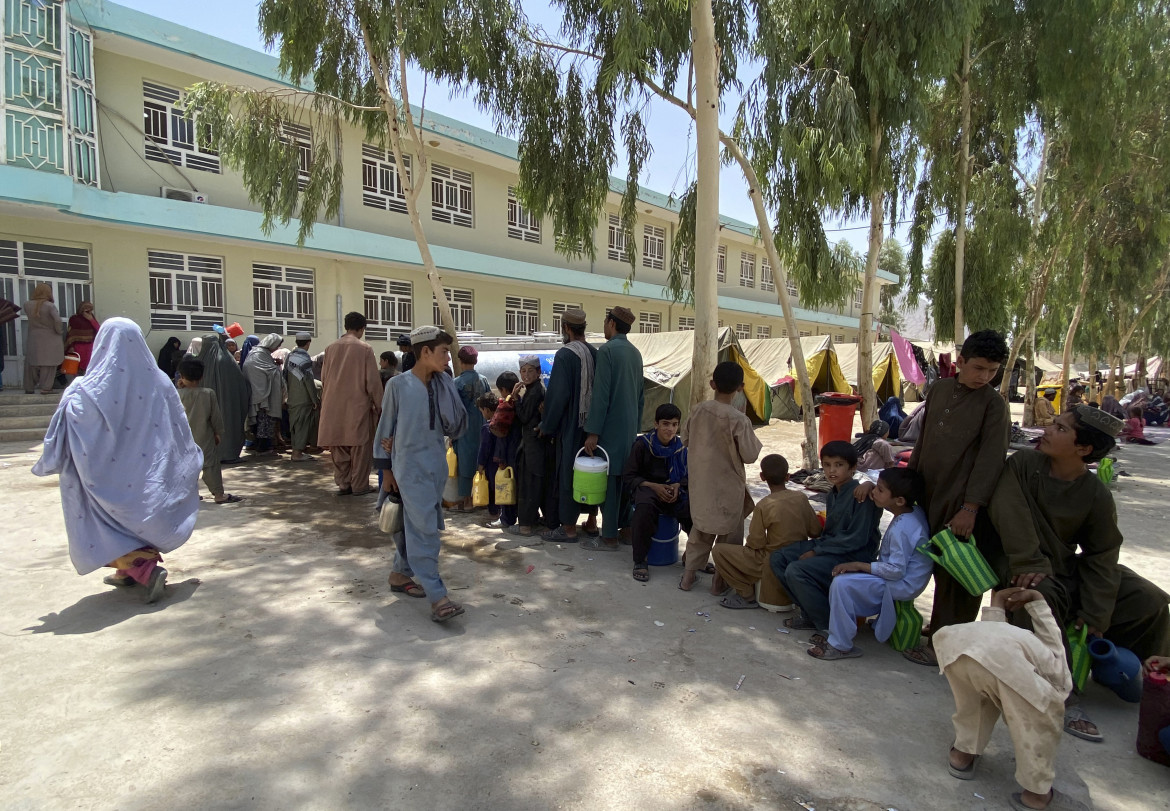Commentary
Europe’s self-defeating paradox: It needs immigration but refuses Afghans
People trying to escape the dramatic consequences of the Afghanistan war are being told by the European states who took part in the war that they must help them leave, provided, however, that they stay out of Europe.

The debate on the decisions to be taken with regard to Afghan refugees is laying bare the hypocrisies, paradoxes and self-defeating nature of the anti-migration policies practiced by the major European countries and the EU.
They have tried many times to justify these policies with a distinction between “lawful” migrants, entitled to seek asylum because they are fleeing from wars and persecution, and “economic” migrants, to be rejected despite the fact they are seeking escape from unsustainable conditions of poverty, environmental disasters and oppression.
However, in the past years, Afghan refugees have been rejected too, despite the fact they were fleeing from a war waged for 20 years by the same NATO members that were barring their doors against them. For example, between 2008 and 2020, asylum was denied to about half of the 500,000 Afghan refugees who requested it from EU countries in that period.
Today, the situation comes into view as not only paradoxical, but downright grotesque. Those who are trying to escape the dramatic consequences of the conclusion of that long, savage and pointless conflict are being told by the European states who took part in the war wanted by the U.S. and NATO that they acknowledge they must intervene to ensure that all Afghans who want to leave the country are able to do so, provided, however, that they don’t want to seek refuge in those European countries which were directly responsible. At the same time, the latter unfailingly emphasize that those who have the most to fear are precisely the part of the Afghan population that has collaborated with their military and administrative apparatus.
But if these countries don’t want them, where should they go? The answer given is: to neighboring countries, namely Pakistan, Uzbekistan, Tajikistan and Iran. These countries, starting with Pakistan, are among those with the highest rates of emigration out of their total populations, and are in only slightly better and less precarious economic and political conditions than Afghanistan itself. Nonetheless, they already welcome Afghan refugees to a much greater extent than the richer European aggressors and neo-colonialists are willing to do.
Thus, the case of Afghanistan makes the policy of rejecting migrants pursued by member states and EU leaders appear even more outrageous and paradoxical. Not only paradoxical, but also self-defeating, because European countries, starting with the largest and most powerful ones, are in need of accepting a much larger number of migrants than the current flows.
In fact, migrants are indispensable to correct an unsustainable demographic imbalance within a population no longer active because it is too young or too old to work, which is therefore dependent on an increasing surplus base of workers. In addition, immigrants born abroad are covering entire productive sectors deserted by the natives, and not only in jobs that are less qualified.
One must add that the taxes and contributions paid by the latest arrivals that obtain legal status are much more than needed to cover the expenses for all the services they use. Even the costs of “reception,” temporary support and rejection—even in Italy, which is complaining of shouldering the greatest burden—are being covered eight times over by their tax revenues (according to the 2019 budget). Which shows that there are no burdens for the host states, but only advantages, including financial ones.
Why, then, the obvious and almost obsessive prevalence of policies of closure and rejection?
There are various reasons for this, including some quite ignoble ones, such as the exploitation of xenophobic sentiments for demagogic-electoral purposes. But at the bottom, there is a structural reason. During the last forty years, the late-capitalist power bloc has been strengthened through policies that are increasingly conservative and closed to any social transformation. Conversely, immigration not only requires an open society, but is necessary for its evolution. It actively contributes to that continuous work of construction and reconstruction of social relations which is vital for the development of a society. However, that requires a type of dialectic that is being oppressed nowadays.
Originally published at https://ilmanifesto.it/i-paradossi-autolesionisti-delleuropa/ on 2021-09-05
